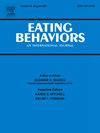美国青少年童年不良事件与饮食失调行为的关联。
IF 2.4
3区 医学
Q2 PSYCHIATRY
引用次数: 0
摘要
我们的研究旨在利用最近的全国性数据:1)确定在美国青少年中,报告的童年不良经历(ACE)是否与个人饮食失调行为(DEB)相关;2)确定在这一人群中,ACE类别与个人饮食失调行为的相关程度。该研究使用了 2022 年全国儿童健康调查(National Survey of Children's Health)的横断面数据,该调查使用的是家长报告的数据。纳入标准包括所有早期(10-13 岁)和中年青少年(14-17 岁)(n = 24,173 人)。在控制协变量的情况下,我们使用多重逻辑回归来检验 ACE 与 DEBs 之间的关联。两个ACE类别(即1-2个ACE类别和3个以上ACE类别)均与三种特定的DEBs有显著的统计学关联:不吃饭或禁食、对食物兴趣低和暴饮暴食。此外,在七类 ACE 中,有六类与 DEBs 有明显的统计学关联,其中包括父母或监护人离婚、父母或监护人入狱、成年人掌掴、打人、踢人、拳打他人、暴力受害者、与精神病患者同住以及与有酗酒/吸毒问题的人同住。我们还需要进一步的研究来探讨导致那些有 ACE 暴露的人罹患 DEBs 风险增加的机制。本文章由计算机程序翻译,如有差异,请以英文原文为准。
Associations of adverse childhood events with disordered eating behaviors among US adolescents
The purpose of our study was to use recent nationally-representative data to 1) determine whether reported adverse childhood experiences (ACEs) were associated with individual disordered eating behaviors (DEBs) for the US- based early and middle adolescent population; and 2) the extent to which individual ACE categories were associated with DEBs for this population. The study used cross-sectional data from the 2022 National Survey of Children's Health, which used parent-reported data. Inclusion criteria included all early (10–13 years of age) and middle-aged adolescents (14–17 years of age) (n = 24,173). Multiple logistic regressions were used to test the association between ACEs and DEBs while controlling for covariates. Both categories for ACEs (i.e. 1–2 ACEs and 3+ ACEs) exhibited a statistically significant association with three specific DEBs: skipping meals or fasting, low interest in food, and binge eating. Additionally, six of the seven ACE categories exhibited a statistically significant association with DEBs which included parent or guardian divorced, parent or guardian time in jail, adults slap, hit, kick, punch others, victim of violence, lived with mentally ill, and lived with person with alcohol/drug problem. Further studies are needed to examine mechanisms contributing to the increased risk of DEBs among those with ACE exposure.
求助全文
通过发布文献求助,成功后即可免费获取论文全文。
去求助
来源期刊

Eating behaviors
Multiple-
CiteScore
4.20
自引率
3.60%
发文量
65
审稿时长
60 days
期刊介绍:
Eating Behaviors is an international peer-reviewed scientific journal publishing human research on the etiology, prevention, and treatment of obesity, binge eating, and eating disorders in adults and children. Studies related to the promotion of healthy eating patterns to treat or prevent medical conditions (e.g., hypertension, diabetes mellitus, cancer) are also acceptable. Two types of manuscripts are encouraged: (1) Descriptive studies establishing functional relationships between eating behaviors and social, cognitive, environmental, attitudinal, emotional or biochemical factors; (2) Clinical outcome research evaluating the efficacy of prevention or treatment protocols.
 求助内容:
求助内容: 应助结果提醒方式:
应助结果提醒方式:


